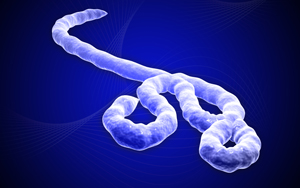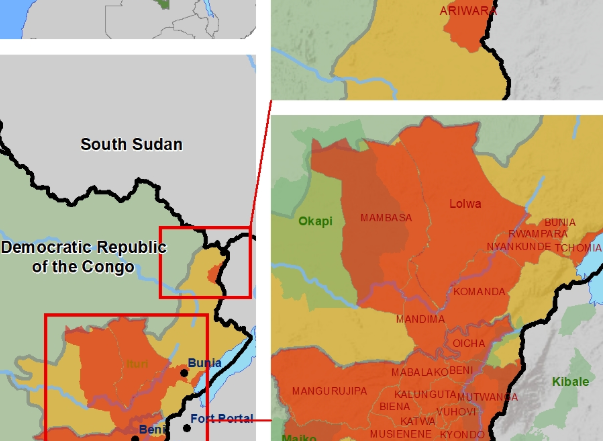Ebola Response Planning
 Ebola Virus Disease (EVD) has become a major public health crisis in the Democratic Republic of Congo, where it is expected the outbreak will last for many more months. While the overall health risk to the U.S. remains low, travelers to and from Ebola-affected regions may be at risk for acquiring the disease and bringing it back into the country.
Ebola Virus Disease (EVD) has become a major public health crisis in the Democratic Republic of Congo, where it is expected the outbreak will last for many more months. While the overall health risk to the U.S. remains low, travelers to and from Ebola-affected regions may be at risk for acquiring the disease and bringing it back into the country.
While fears of Ebola are escalating due to recent media reports, there has been a lack of transmission from people exposed to patients without symptoms. There is an unlikelihood of catching Ebola in a community or public setting. This page is intended to provide guidance to the St. Louis community regarding travel to and from Ebola-affected regions, and to outline some of the response efforts undertaken to date.
Click here to learn more about Ebola Virus Disease from Steven Lawrence, MD, a Washington University infectious disease specialist at Barnes-Jewish Hospital.
Preparedness Activities at Barnes-Jewish Hospital
Barnes-Jewish is closely monitoring the Ebola situation in Africa and the United States and following the frequently-updated guidance issued by the Centers for Disease Control and Prevention (CDC) and the World Health Organization.
Together with our physician partners at Washington University School of Medicine, we are reviewing, revising and exercising protocols to quickly recognize, isolate and treat persons suspected of having Ebola in a manner that will prevent spread of infection to others.
Travel to Ebola-Affected Regions
At this time, the CDC recommends travelers to the Democratic Republic of the Congo take enhanced precautions to avoid EVD.

Click to enlarge
|
Travelers Returning from Ebola-Affected Regions
Travelers who are returning from the Democratic Republic of Congo and believe they were exposed to Ebola during their travels should seek guidance from their physician immediately upon their return. All returning travelers from the affected countries, regardless of their potential exposure to Ebola, should monitor their health for 21 days and seek immediate care if they develop fever to 100.4°F (38.0°C) or greater, especially if other symptoms are present such as headache, muscle pain, vomiting, diarrhea, abdominal pain or unexplained bleeding or bruising.
|
Resources
CDC: How is Ebola transmitted? (infographic)
CDC: Questions and Answers about Ebola
Journal of the American Medical Association: Ebola Virus Disease
New England Journal of Medicine: Articles and other resources on Ebola
World Health Organization: Messages about Ebola for the general public